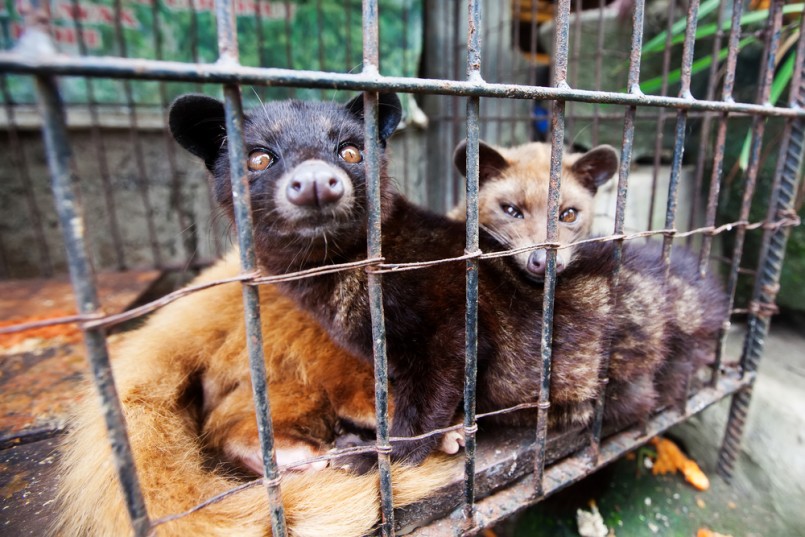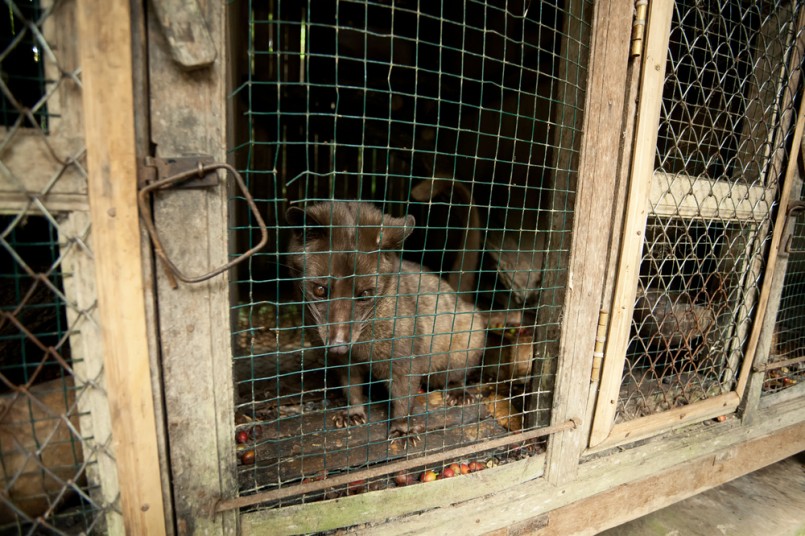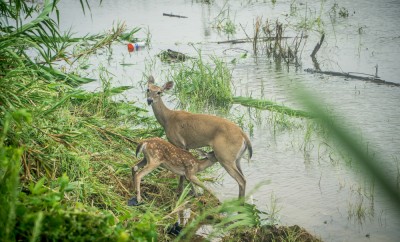Cultures
The animal cruelty behind Kopi Luwak luxury coffee

Image: Shutterstock/My Good Images
What’s your favorite kind of coffee? If you’re like me, it’s probably something you can grab from the grocery store for less than $10/bag. Some folks prefer a little more luxury to their java, however, like a cup of the world’s most expensive Kopi Luwak coffee—which can easily sell for almost $100 in some major cities. The problem is that coffee connoisseurs may not realize the increasing animal cruelty that goes along with their purchase. The Kopi Luwak beans are taken from the excrement of the cat-like Asian palm civet, resulting in its nickname, “cat poop coffee,” as well as a lifetime of cramped captivity in horrific conditions for many of the civets.
How it started
The wild Asian palm civet is remarkably cat-like in appearance, resembling in some ways a ferret or raccoon. They are native to Southeast Asian rainforests where they forage nocturnally and spend their lives predominantly in the trees. Coffee cherries are one of their naturally-occurring food sources, and is found partially-digested in their scat, which results in a coffee flavor some consider “smoother” due to its diminished acidity and musky aroma. Originally, people would harvest the coffee beans from civet scat in the wild, which made it a rare delicacy while still allowing the animals to continue to live freely. Increasing worldwide demand for the beans and a subsequent desire for plantations to maximize production has caused these tree-dwelling creatures to instead be captured alive, placed in cages alone, and fed only bowls of coffee cherries when their normal diet would consist of wild fruits, lizards, eggs and insects as well.

Image: Shutterstock/Deamles for Sale
The ugly truth
Recent investigations have revealed that conditions in the civet coffee plantations are abysmal for the animals, Plantation workers interviewed shared that the civets are never allowed out of their cages, and are kept in cramped quarters for many years to a lifetime. Some were found to be soaked in urine and feces, cowering in the enclosures, gnawing at their own legs, and even having blood in their urine. If one is to die prematurely for lack of care and exercise, another promptly fills its space the area poachers’ seemingly endless supply.
Misleading the public
Still marketed as “rare” and “wild,” the now mass-produced coffee beans are sold in misleading packaging, when in fact they are cage-raised and poacher-supplied in plentiful numbers—quite the opposite of “rare” and “wild”…yet their prices remain exorbitant. The flavor was even passed over by one coffee aficionado in favor of four others in a blind taste test. So what can be done?
There is hope
Aside from signing one of the online petitions being circulated to demand a stop to the abuse, conscientious Kopi Luwak fans can feel hopeful—there are efforts now attempting to replace this dirty trade with more sustainable production. One such endeavor is happening with Mark Ross, founder of Ross Kopi, who assures his beans are collected from the wild and not captivity. Let’s hope more follow suit in creating sustainable, cruelty-free products, including but not limited to luxury coffee, so we can enjoy consuming it without contributing to unnecessary pain and suffering elsewhere.





0 comments